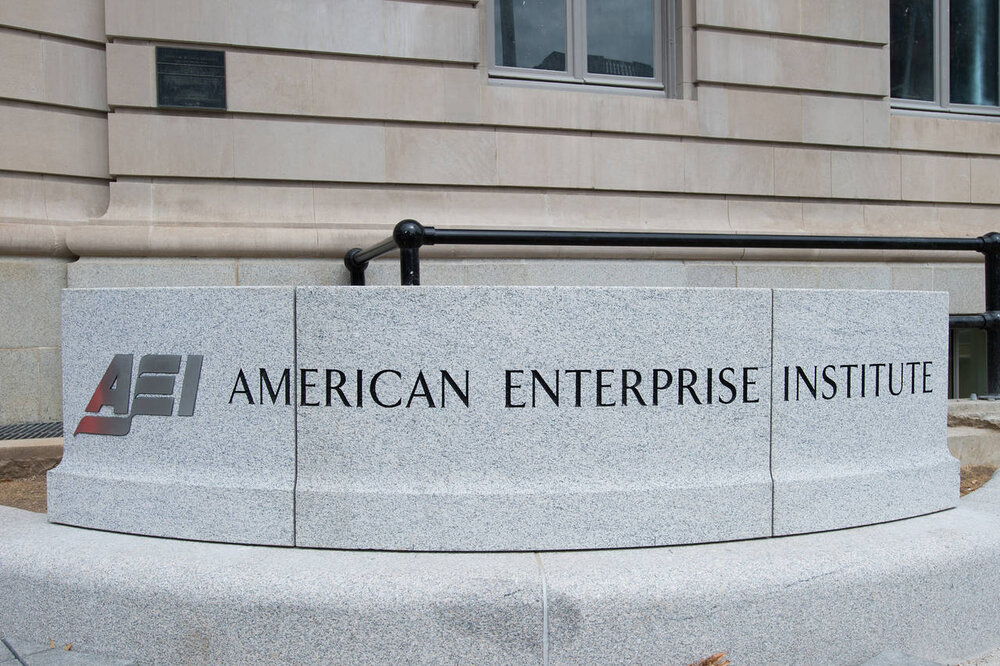AEI guidelines for Biden: Maximum pressure campaign on the table

TEHRAN- The American Enterprise Institute for Public Policy Research, known simply as the American Enterprise Institute (AEI), is a Washington, D.C.–based think tank that researches government, politics, economics, and social welfare.
The AEI is commonly associated with conservatism and neoconservatism, although it is officially non-partisan.
Some AEI senior fellows and scholars are considered to be among the leading architects of the Bush administration's public and foreign policy. Among them are Dick Cheney, vice president under George W. Bush; John R. Bolton, former ambassador to the United Nations; and Paul Wolfowitz, former deputy secretary of defense.
Also, other current experts in the AEI, with a special focus on Iran and the broader West Asia, are apparently associated with right leaning tendencies and neo-conservatism that advocate interventionist acts such as regime change and military interventions. The most prominent of them are fellows such as Michael Rubin and Kenneth Polack.
Biden’s key figures: Apparent hostility towards Iran
A quick glance at recent comments by Joe Biden’s key picks for the Oval Office on policies towards the Islamic Republic of Iran in comparison with those released by major Iran experts at the AEI shows significant similarities regarding content and tone let alone of undeniable equivalence between those stated by former Trump’s administration.
Given to the fact that the AEI plays a determinant role in the White House decision-making towards Iran, monitoring its comments can be quite critical.
For instance, Jake Sullivan, slated by Biden as the next U.S national security adviser, told the online Wall Street Journal CEO Summit on December 7 that broader issues, including Iran’s missile program and its involvement in wider West Asia conflicts, should be negotiated once Iran was back in compliance with the JCPOA. Also, in an interview on “GPS” on CNN, he talked about a “follow-on negotiation” with Tehran over its missile capabilities.
Another example is U.S. secretary of state-designate Antony Blinken’s statements on likely Biden’s approach to Iran. At his confirmation hearing before the Senate Foreign Relations Committee, On January 19 he claimed:
“The breakout time - the time it would take Iran to produce enough fissile material for one weapon - has gone from beyond a year, as it was under the JCPOA, to about three or four months, based at least on public reporting.”
The next U.S. secretary of state added: “New administration stronger, longer deal could address Iran’s destabilizing activities in the region as well as its missiles”.
He also made clear that engagement with Tel Aviv and Persian Gulf Arab states on the Iran deal is “vitally important”.
Besides, Avril Haines, director of national intelligence-designate told the Senate Intelligence Committee during her confirmation hearing that the Biden administration should address Iran’s ballistic missiles and destabilizing activities in the Middle East in any future diplomacy with Iran. She also stressed: “I absolutely agree that Iran is a threat and a destabilizing actor in the region. And I think this is an issue that we need to focus in on.”
Moreover, Gen. Lloyd Austin, Biden’s secretary of defense, also reiterated the above even in the same words. During his confirmation hearing before the Senate Armed Services Committee, he called Iran a “destabilizing element” that posed a “threat” to U.S. forces and partners in the region. And emphasized the necessity of addressing Iran’s missile program in future negotiations.
AEI recommendations to Biden: Trump’s echo chamber
One of the prominent fellows in the AEI whose analysis on Iran hit the headlines significantly is Michael Rubin. As a former Pentagon official and old-hand expert on Iran, Turkey, and the broader West Asia, he is the author, coauthor, and coeditor of several books exploring diplomacy, Iranian history, Arab culture, Kurdish studies, and Shi’ite politics. He regularly appears on press besides writing pieces mostly for the National Interest and Washington Examiner.
Since the beginning of 2021, he has published nearly 20 articles and analyses to recommend Biden’s administration to how encounter and deter the Islamic Republic of Iran effectively and for good. He believes that the Oval Office could take cues from Trump to keep maximum pressure on Tehran.
As expected, the terms “Iran’s nuclear weapons”, “Iran’s threat to Middle East peace and security” and the similar are quite redundant in AEI articles on Iran, outwardly stressing the urgent need of leading a deterring strategy towards Tehran by Biden.
While some fellows such as Rubin, Bolton and Danielle Pletka, one of the former senior professional staff members at the Senate Foreign Relations Committee known for her neoconservative tendencies, boldly denounce any future negotiations with Iran, some at the AEI try to run with the hare and hunt with the hounds. Among them is Kenneth Pollack, a former CIA intelligence analyst and expert on West Asia politics and military affairs who has served on the National Security Council staff. He echoes the same in somehow mild words implying that bring Tehran to the negotiation table to put an end to ballistic missile program as well as containing her malicious activities across the region.
Along the above, on 19th February, Bolton called for the fall of the Iranian establishment in DW interview. The former Trump adviser criticized the JCPOA harshly and former President Trump for failing regime change in Tehran.
Biden’s strategy: “Maximum pressure” campaign at the table
Washington’s fixed principle in decision making towards strategic regions, mainly in West Asia, is based on geopolitical facts on the ground. Therefore regardless of partisan tendencies of the president, the White House tries to fulfill its multidimensional foreign national interests through SAME STRATEGY with DIFFERENT TACTICS.
Reviewing formal expressions by Biden’s key decision-makers as well as some AEI strategists as close consultants to every White House administration reveals that this Democrat president is going to cling to the predetermined U.S policy towards Iran. In other words, the Democrat hawks of Capitol Hill will likely pursue a “maximum pressure” campaign commenced by Trump at the negotiation table with Tehran.
Leave a Comment